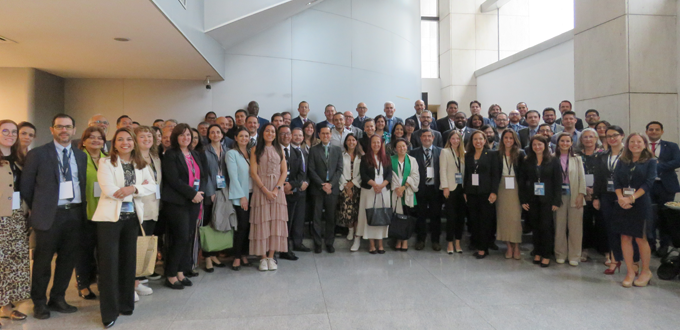Digital Inclusion: Preparatory Meeting for the eLAC Ministerial Conference
20/03/2024

By Miguel Ignacio Estrada, Chief Strategic Relations Officer at LACNIC
The Ninth Ministerial Conference on the Information Society in the Americas provided a crucial platform for policymakers and government, civil society, private sector, technical community, and academia representatives to meet and discuss strategies for advancing digital inclusion in the region. Organized by the United Nations Economic Commission for Latin America and the Caribbean (ECLAC), this preparatory meeting laid the foundations for discussions on how to harness the potential of information and communication technologies (ICT) for promoting sustainable development and bridging the digital divide.
Digital inclusion includes efforts to ensure that every individual and community has access to and can effectively use ICT. In our region, where disparities in digital access and skills persist, it is essential to encourage digital inclusion to promote equitable socioeconomic development.
Several key topics were discussed during the meeting, reflecting the multifaceted nature of digital inclusion:
- Infrastructure and connectivity
- Digital literacy and skills development
- Inclusive digital policies
- Data governance and privacy
As LACNIC representatives and together with our CEO Oscar Robles, our participation focused mainly on discussions about infrastructure and connectivity, stressing the need to update regulatory frameworks to connect the unconnected through innovative alternatives such as community networks, low orbit satellites, TV white space, and others.
We also emphasized the strategic importance of IPv6 adoption to connect the unconnected. In this sense, we recalled that IPv4 addresses are now exhausted, yet many more addresses are needed for the large number of people who are yet to connect.
We underscored the importance of collaborative efforts among governments, civil society, academia and the private sector to drive significant progress towards achieving digital inclusion objectives.
The Conference was a pivotal moment for advancing the digital inclusion agenda across the region. By fostering dialogue and sharing best practices, participants reaffirmed their commitment to leveraging the transformative power of ICT for the construction of more inclusive and resilient societies.
Moving forward, sustained efforts and collective actions will be necessary to translate these discussions into tangible results that benefit all members of our diverse communities.